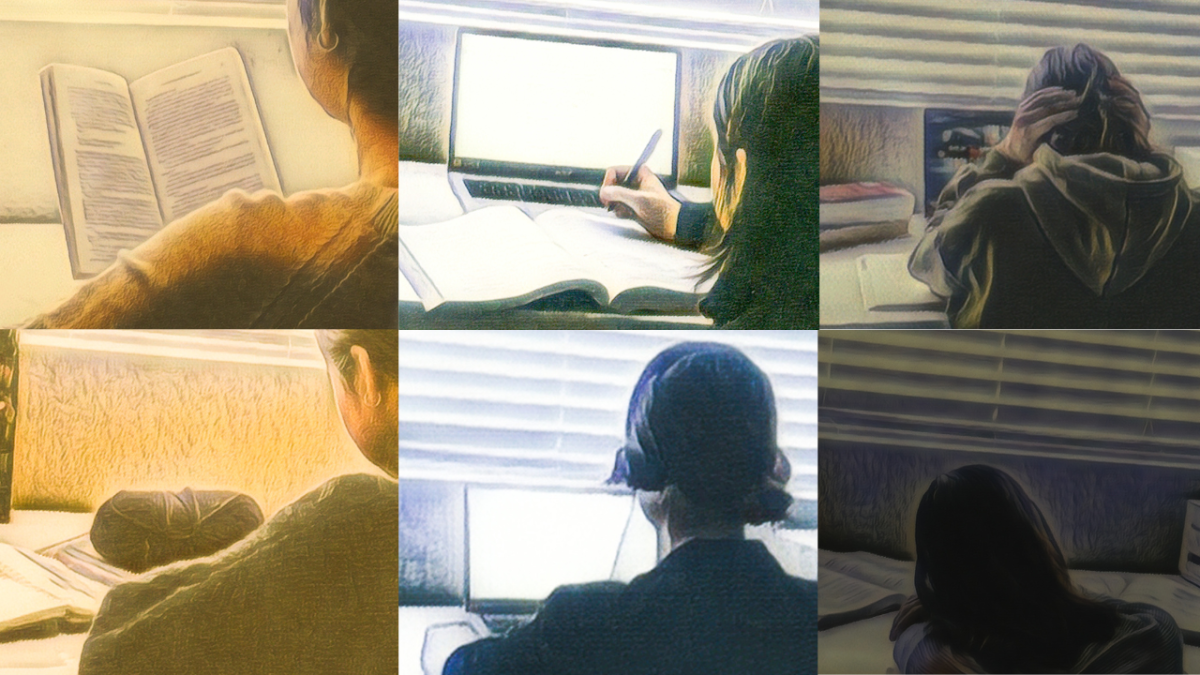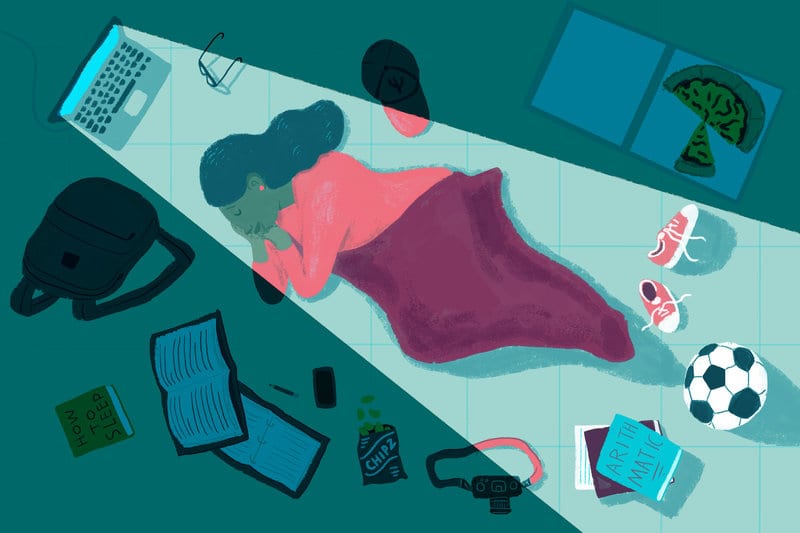“I Only Slept 3 Hours Last Night.”
Students aren’t getting enough sleep and many brag about their poor health to be relatable.
November 4, 2021
“I need coffee” or “I’m so tired” are just a couple of the many recurring phrases said throughout the day. Especially after the first few months of school, many students can be heard groaning as they mope their way through their busy schedules. Of course, students have always struggled with getting enough sleep. But when did these phrases become so common to the point that it’s almost a trend to be sleep-deprived?
With more people on social media promoting relatable content, people have been influenced to be more vocal about their daily struggles to easily connect with others. These connections may have started as a nice way to relate to one another. However, as people increasingly “brag” about their problems, whether intentionally or not, they’re starting to promote bad habits like not sleeping enough, not eating right, not taking care of oneself, having bad mental health, etc.
But at what point does trying to be relatable become dangerous?
According to the CDC, teenagers ages 13–18 years need to sleep 8–10 hours per 24 hours. When students feel the need to be liked and relatable by sharing their poor sleep schedules, these bad habits start to get normalized and gain popularity resulting in a myriad of students not taking care of themselves.
On the other end of the spectrum, some students aren’t trying to follow a trend. Instead, they almost have no other choice.
For students trying their hardest to impress colleges, their lack of sleep is undoubtedly largely attributed to just not having enough hours in a day. From AP classes, to extracurriculars, to part-time jobs, to standardized testing, students are going to struggle with juggling so many responsibilities on top of their basic necessities. Joyce Lin (12) is currently doing college applications, is involved in mock trial, plays on the YLHS varsity tennis team, and takes four AP classes. For her, these all fall into the same season (fall). So “it’s hard to balance everything while trying to get sleep. When I have tests to study for and homework to finish on the same days as my tennis games that last 3-4 hours, I’m often too tired to do work after and end up sleeping at 10:00 p.m. and waking up at 3:00 a.m. to finish everything.” Even when students do get sleep, it’s usually associated with a bad sleep schedule leaving them exhausted throughout the day.
Most people know that sleep is important and even wish that they could spend more time in bed. But when teenagers want to be relatable or be involved in every extracurricular possible, the importance of taking care of one’s health is ignored. While it is easier said than done, making an effort to keep basic healthy habits is vital to our development. So next time you want to sound relatable, find something else to talk about other than unintentionally promoting bad habits. And if you have a full schedule and can’t fit sleep in, communicate with your teachers to find a way around it.








































